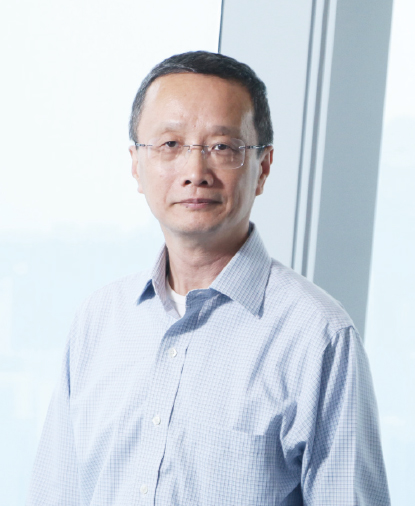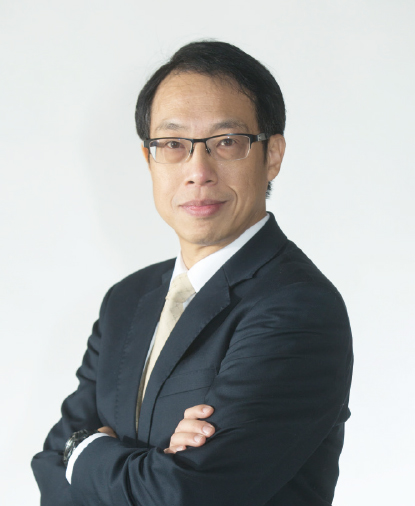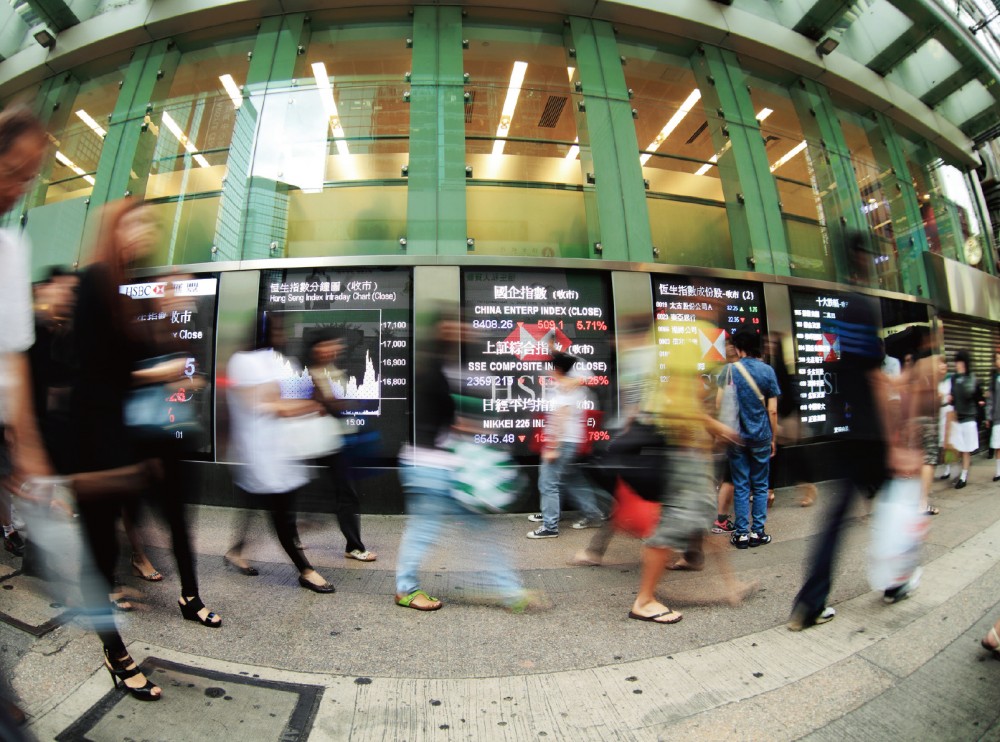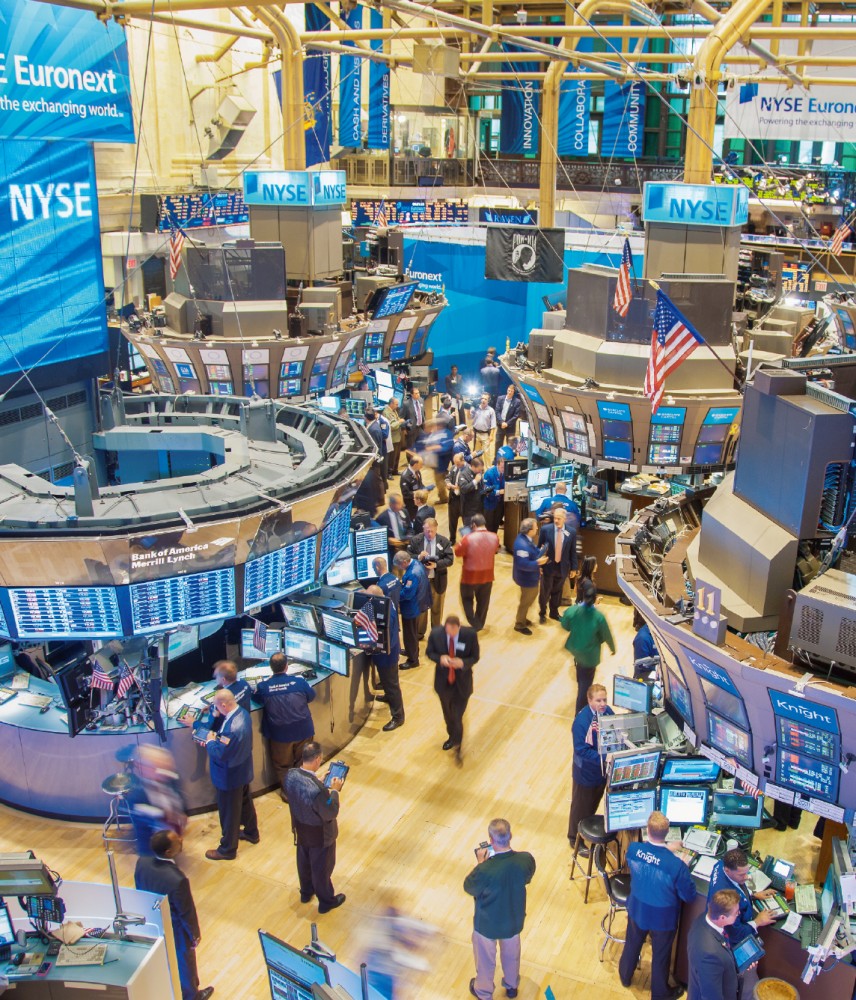The US has raised interest rates ninth times since late 2015, but Hong Kong did not follow the first seven US rate hikes. It was not until the US raised interest rates for the eighth time that most banks in Hong Kong finally followed suit and raised their prime rates (P-rate) by 0.125% point, bringing Hong Kong officially into a tightening cycle. With the US economy showing signs of slowing, what will be the Fed’s pace of rate hikes in 2019? How will it impact the Hong Kong economy?

Tao Dong: Hong Kong faces economic challenges as the rate hike cycle unfolds
The USD has softened against other major currencies recently. In addition, factors such as the Sino-US trade war and “hard Brexit” may create headwinds for growth in the US. Tao Dong, Vice Chairman, Greater China for Private Banking Asia Pacific, Credit Suisse, believes the US monetary policy may turn dovish next year, but ultimately the tightening pace will depend on future economic data.
Economic data will influence pace of US rate hikes
The economy is a major consideration in deciding rate hikes. Economic data such as employment figures and wage growth have influence on the overall economic situation. Tao believes US economic growth will decelerate and there will be room for slower rate hikes next year if annual job gains are less than 150,000. In addition, based on the current development of the Sino-US trade war, Tao believes it would not have a significant impact on the US economy, but the Fed may change some fundamental policies if other factors arising from the trade war accelerate economic downturn in the US.
Regarding the pace of US rate hikes in 2019, Tao expects two rate hikes in the first half of the year, at about 0.25% point each. Economic data such as employment and wage levels, especially job market figures, will affect the frequency and magnitude of rate hikes. The Fed will opt for bigger increases if the employment rate is low or the inflation rate is high.
Hong Kong’s pace of rate hikes will depend on liquidity
 Moving in tandem with the US, Hong Kong has also entered a rate hike cycle. According to Tao, Hong Kong has not followed the US’s lead to raise interest rates until recently because there was relatively ample liquidity in the Hong Kong market, supported by strong inflows from the Mainland where economic growth has been robust. However, Hong Kong did raise interest rates alongside the US at the end when capital outflows led to tightened liquidity as the spread between USD and HKD interest rates gradually widened.
Moving in tandem with the US, Hong Kong has also entered a rate hike cycle. According to Tao, Hong Kong has not followed the US’s lead to raise interest rates until recently because there was relatively ample liquidity in the Hong Kong market, supported by strong inflows from the Mainland where economic growth has been robust. However, Hong Kong did raise interest rates alongside the US at the end when capital outflows led to tightened liquidity as the spread between USD and HKD interest rates gradually widened.
Tao expects Hong Kong to raise rates twice on the heels of the US in 2019, but the magnitude will depend on the liquidity situation. “Liquidity is the main factor that directs Hong Kong’s rate trend; whereas rate movements in the US is just one of the many factors, but not the only one, that affect liquidity in Hong Kong. Ultimately, the magnitude of Hong Kong’s rate hikes is dependent on the liquidity situation.”
Cautious economic outlook for Hong Kong next year
With regard to the property market that attracts the most attention, Tao believes that performance of the Mainland property market will have the biggest impact on Hong Kong’s property market. "Property price movements in Hong Kong are definitely affected by rate hikes, but they also depend on property price movements on the Mainland. Given that the Mainland property market is now stagnant, Hong Kong properties are likely to tread water too because some of the investment funds are hot money from the Mainland.”
As for Hong Kong’s economic environment in the coming year, Tao believes there are signs of a slowdown. The high-end consumer market is obviously in a slump and transaction volume of the property market is continuing to fall, reflecting investors’ prudent attitude. Tao said that this sentiment will still dominate Hong Kong in the new year. While the current employment situation is quite good, the Hong Kong job market will be implicated if the economy declines sharply.

Wilson Chan: Raise Steady Capital to Meet Rate Increase Variables
After its December 2018 meeting, the Fed announced a 0.25% rise in its benchmark interest rate. Local banks of Hong Kong have not followed the US rate increase, presumably because they have abundant liquidity. As 2019 kicks off, the pace of the US rate increase remains a topic of great concern to the market. Some are anxious that the US rate increase will significantly push Hong Kong’s interest rate up and affect the local economy and its property market.
Speaking on the pace of the US rate rise, Wilson Chan, Adjunct Professor and MBA Associate Director of Outreach at City University of Hong Kong, listed three main influential factors, namely the economic trend of the US, the political development of the US, as well as pressure from the global economy. “If we look at the trend of the economic development of the US, both positive and negative factors are there. On the negative side, the market is worried whether the US economy can continue to perform well, as tax reduction in the States would bring about a budget deficit. While the initiative did not create strong impact during 2018, the market is increasingly concerned about the American economy as the balance sheet is yet to see improvement, and the rate rise would further increase interest costs. The continuing China-US trade war, on the other hand, is adding increasingly heavy pressure on companies.” On a positive note, Chan reckons that as the shale oil effect of the US further heightens, the production costs would decrease and the production volume would increase, which are helpful to the growth of the US economy.
US economy affected by politics
 As for the political situation of the US, the actions of US President Donald Trump would undeniably be influential. Chan pointed out that Trump had imposed pressure on the Fed multiple times. Rumor even has it that he intended to terminate the office of the Fed Chairman. Added with the recent fiscal cliff brought about by Trump, as well as the conflicts in diplomatic policies with different countries and regions, all these could directly or indirectly affect the pace of rate increase.
As for the political situation of the US, the actions of US President Donald Trump would undeniably be influential. Chan pointed out that Trump had imposed pressure on the Fed multiple times. Rumor even has it that he intended to terminate the office of the Fed Chairman. Added with the recent fiscal cliff brought about by Trump, as well as the conflicts in diplomatic policies with different countries and regions, all these could directly or indirectly affect the pace of rate increase.
It is worth noting that the last two global economic depressions were the Asian financial crisis of 1997 and the financial tsunami of 2008. Chan stressed that the systemic risks triggered by the two financial disasters have remained even now. Past experiences also proved that when the US rate rise drew global capital flow to the States, risks in emerging markets will increase. He added that if the Fed further increases the rate in accordance with domestic circumstances, the external global economy will be facing financial turmoil, and the US would find it difficult to remain unaffected amidst globalization.
Chan said that, under all these hidden threats, and that the European economy is growing relatively slowly, the emerging markets such as Southeast Asia may become the major regions to give traction to the economy. He expects there should be no more than two rate increase in the US this year.
Abundance of liquidity is key
 Chan believes that the abundance of capital is a key factor for Hong Kong to consider whether or not to increase its interest rates; it also affects the rhythm and variance between the rate rises of Hong Kong and the US. “The banks of Hong Kong have abundant deposits and capital supply is adequate without ample demand. Therefore, it is difficult to push HKD rates to follow those of the US.”
Chan believes that the abundance of capital is a key factor for Hong Kong to consider whether or not to increase its interest rates; it also affects the rhythm and variance between the rate rises of Hong Kong and the US. “The banks of Hong Kong have abundant deposits and capital supply is adequate without ample demand. Therefore, it is difficult to push HKD rates to follow those of the US.”
Chan stressed that the HKD has a very unique advantage under current global circumstances. “The HKD is pegged with the USD. The strength of the greenback against various currencies implies that the HKD is appreciating. However, the HKD does not have to be cleared and settled in the States, so it is not affected by the recent policies of US President Trump. For example, USD transactions with Iran may lead to frozen USD assets. This makes the HKD a favorable safe-haven currency.” He noted that the regulation behind the HKD and the payment finance infrastructure have long reached international standards. With the robust development of virtual banks and internet finance, the HKD is now at the international level in terms of convenience and safety, and the currency has become one of the most popular ones.
Normalization of interest rates
While it is generally believed that rate increase affects the price of real estates, Chan has another interpretation. He thinks that the supply and demand of the real estate market, as well as the insufficiency of land supply, are far more important than the cost of interests. “At the beginning of interest rate adjustment, we can even consider it as the normalization of the interest rate. Since Hong Kong has stayed in an extended ultra-low interest rate period, many situations were formed in a twisted way. If the deposit interest rates go excessively low, the interest rate for loans would also drop. Therefore, it is healthier for banking operations when the interest rate returns to a normal level.” In addition to the rate increase factor, Chan also thinks that the Hong Kong economy is affected by various factors. Examples include the China’s policy of the US, the “Belt and Road” initiative, as well as the development of the Greater Bay Area, etc. There are both challenges and opportunities in these aspects, which would lead to a reshuffling of the global economy.




